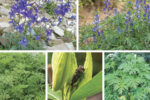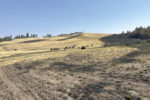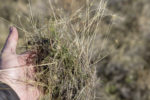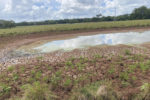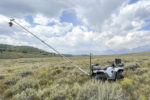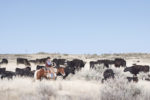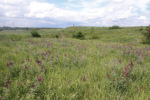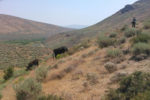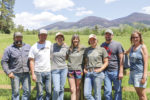Items Tagged with 'range monitoring'
ARTICLES
Carefully planned placement of protein and mineral supplements can effectively incentivize cattle to graze diverse landscapes in a way that utilizes more of the natural resources and enhances the land for future use.
Read More
Poisonous plants that threaten livestock operations
Poisonous plant infestations can make grazing public and private lands challenging; it's crucial to identify possible problem plants in your grazing area and know the signs and symptoms of animals exposed to these plants.
Read More
Rest after fire: Is it as simple as two years?
The complex nature of rangeland ecology makes a blanket two-year rest policy difficult, and ongoing research seeks to better understand the variables influencing plant recovery and livestock grazing after fires.
Read More
Dormant-season grazing is key to controlling invasive annual grasses
Targeted dormant season grazing can help reduce invasive annuals and help improve the density of native perennial plants.
Read More
What is blue-green algae, and how do I deal with it?
Cyanobacteria can be a deadly force to be reckoned with. Good management practices and careful monitoring of water quality are critical to keeping livestock away from toxic water sources.
Read More
Cattle and pollinators’ mutually beneficial relationship
The relationship between pollinators and grazing livestock on rangelands is often underappreciated. But thanks to research being done across the Great Plains, ranchers will be able to better understand how they and pollinating insects can help each other.
Read More
Implications of more efficient cattle on rangeland
Why do some cow herds seem to be more efficient on rangeland than others? Unlocking that answer could add valuable pounds to calves from weaning to the feedlot to finishing.
Read More
SUMMARY
Temporary stewards: Ranching to preserve the land
With an intense passion for improving the land, the Flynn family of western Montana has adopted a philosophy of utilizing cattle to achieve their goal of a healthy range.
Read More


